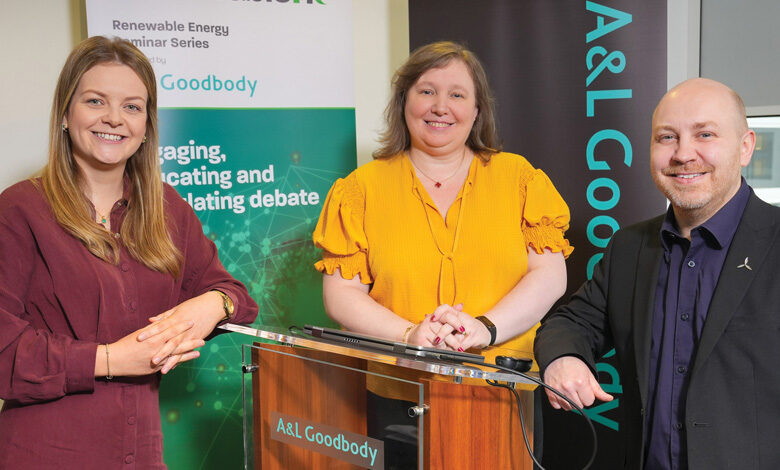RenewableNI says radical reform of the planning system is needed

As Northern Ireland reflects on the result of the recent council elections, we continue without a sitting Assembly. RenewableNI, the voice of Northern Ireland’s renewable electricity industry, has been continuing to engage with policy makers and developers in the Assembly’s absence, achieving change in difficult circumstances.
RenewableNI’s series of sold-out events has allowed people to hear expert speakers from government departments and those in the industry. The key message coming from these is that while we are finally moving in the right direction, the planning system means we are doing so at a snail’s pace.
Steven Agnew, Director of RenewableNI, says: “We have been working very closely with the Department for the Economy (DfE) as they roll out the actions for the Energy Strategy. We have fed into their consultations on the Offshore Renewable Energy Action Plan (OREAP) and Design Considerations for a Renewable Energy Support Scheme.
“DfE have provided speakers for our last few seminars and taken questions from the audience. This engagement has been vital to help drive the industry forward, despite the absence of ministers.
“We welcome recent increased engagement with the Department for Infrastructure (DfI) but it is still very much the first steps. In mid-May 2023, DfI facilitated an engagement session with the renewables industry and those with the planning system. This was an excellent opportunity to better understand the issues from both sides, but more importantly to see how we can better work together to overcome them.”
Northern Ireland has some of the best wind in the world, but the uncertainty of planning timescales is driving away the potential investment. Solar development here has stalled at a time when there has been a boom in Republic of Ireland.
The Climate Act set a target of 80 per cent renewable electricity by 2030. This will require more than doubling our current capacity of 1.8GW to meet the electrification of heat and transport.
Achieving this target will bring over £5 billion GVA to the local economy, create 2,000 jobs and reduce the cost to consumers. We would also reduce carbon emissions from the electricity sector by 75 per cent from where they are today.
Agnew concludes: “Developers are facing a backlog at every stage of the planning system. Amongst our members, 85MW of renewable electricity, enough to power up to 85,000 homes, has been held up for more than three years and counting.
“At a time when we should be accelerating towards a cleaner energy future, it very much feels like the handbrake is on. Without major changes we have no chance of getting close to 80 per cent this decade. There is a climate emergency. Now we need to see an emergency style response from the relevant departments, business as usual is not an option.”
RenewableNI
W: www.RenewableNI.com
Twitter: @RenewableNI






